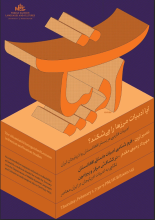On February 1, the Department of Middle Eastern Languages and Cultures held its annual Afrassiabi distinguished lecture in Persian and Iranian studies. The lecture series highlights informed and generative perspectives on Iran and Persian literature in a variety of disciplines and topics. The inaugural lecture was delivered in 1999 by Dick Davis, the eminent English translator of Persian poetry and academic. Since then, eighteenth speakers have given talks at the University of Washington.
This year, the lectureship turned twenty five years old. MELC celebrated this milestone by holding a series of unique and well-attended events that pushed against the boundaries of Persian and Iranian studies, two fields that are problematically conceptualized as singular in American academia. This problem of cultural singularity, one of the most salient features of area studies, has generated wrongheaded and ahistorical ideas: framing Persian language and literature as the exclusive patrimony of Iran and the erasure of Iran’s other languages of cultural importance (i.e. Azeri Turkish, Armenian, Georgian).
MELC welcomed two speakers who shared their unique research and enthusiasm for literary history with the faculty, students, and members of the Iranian and Afghan communities in Washington State: Dr. Nasir Arian, a visiting assistant professor of modern Iranian history at Penn State University and Mr. Mehrdad Rahimi-Moghaddam from the New South Wales University in Sydney, Australia.
On January 30, attended by a mixed audience of students, faculty and community members, Mr. Rahimi-Moghaddam delivered a dynamic and informative presentation in which he traced the life of Azeri Turkish as a medium of oral and literary cultures in the course of four centuries. His presentation (see slides here) challenged the ahistorical notion that Persian enjoyed an exclusive status as a language of learning and literature by briefly examining Azerbaijani Turkish texts produced in Iran. The latter part of his presentation focused on the invention of monolingualism in late Qajar Iran, a project that the Pahlavi dynasty (1925-1979) institutionalized through vilification of and violence toward Turkic peoples in Iran (see image below for instance).
On January 31, Dr. Arian held a workshop focused on the question of gendered violence in the Persian fiction of Afghanistan. Dr. Arian’s doctoral dissertation, completed at ʿAllameh Tabatabaʿi University in Tehran, examines a century of Persian fiction produced in Afghanistan through the question of literary form, a departure from studies that confer primacy to political historiography. Drawing on the breadth and depth of his research, Nasir posed a key question to his audience: Do fictional instantiations of gendered violence merely reflect misogyny and sexism in society or do they also normalize —or worse encourage— violent acts committed against women? He then patiently did a number of close readings and generated dynamic conversations. At the end, Dr. Arian’s analyses spurred attendees to reformulate the question: What types of reading or modes of inquiry are capable of critically reflecting on gendered violence (as opposed to presenting it as culturally natural)?
On February 1, the pair gave back-to-back talks to an audience of forty in Denny Hall. Mehrdad Rahimi-Moghaddam delved deeper into the formation of literary nationalism in Pahlavi Iran. He examined the unprecedented rise of Persian chauvinism and anti-Turkic vitriol among Pahlavi-era intellectuals and statesmen whose ideas were formative to the making of modern Iran. He zeroed in on how different Azeri Iranian writers have navigated the monolingual policies of the state. Many authors abandoned writing in Azeri, a few others like Reza Baraheni (d. 2022) peppered their Persian fiction with Azeri phrases and dialogues, but far fewer enjoyed the type of fame and popularity that the poet Shahriyar (d. 1988) earned for his Azeri verse. Dr. Nasir Arian surveyed works of Persian fiction in Afghanistan by foregrounding the complex interplay of narrative and ideology. A vibrant and long discussion ensued, centered on questions of language ideology and literary history.
For its organizer, Professor Aria Fani, the most gratifying outcome of these events was the continued cultivation of a community of people in Seattle whose history and culture have historically been overlooked and devalued in the field of Persian and Iranian studies. That so many Azeri Iranians and Afghans enthusiastically attended and participated in these events —many for the first time— is a positive step in creating scholarly and cultural contexts in which “Persian” and “Iranian” no longer pose as one and the same, standing as two distinctly separate domains of inquiry, albeit with great overlap.
MELC expresses its deep gratitude to the Afrassiabi family for their longstanding support of the Persian and Iranian studies program and congratulates them on this important milestone. The Afrassiabi lectureship, along with other initiatives in the department, have made Seattle an important hub for Persian and Iranian studies on the West Coast. We also thank Peyvand NPO for their support and Shabnam Entezar, lecturer of Persian in MELC, for her valuable contributions to the success of these events. We look forward to organizing the nineteenth Afrassiabi lecture next year. Dr. Arian and Mr. Rahimi-Moghaddam have certainly set the bar high. To suggest a speaker or topic for the 2025 lecture, please email ariafani@uw.edu.
Event poster: Kourosh Beigpour
Cartoon image from Molla Nasraddin, an Azerbaijani satirical periodical published in Tblisi (1906–17), Tabriz (1921) and Baku (1922–33). The Azeri caption under the image reads:
Pupil: Teacher, you see, we have our own language. For God’s sake let us learn it a little bit.
Teacher: It won’t happen, Turkish, no way. I must shove this tongue down your throat. (trans. by Shabnam Entezar)
